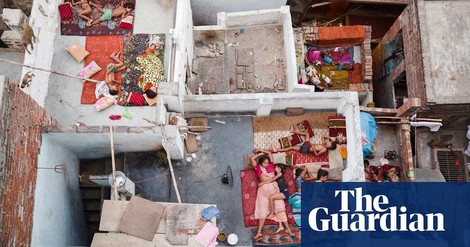Your podcast discovery platform
Curious minds select the most fascinating podcasts from around the world. Discover hand-piqd audio recommendations on your favorite topics.

piqer for: Boom and bust Global finds
I am a Dutch journalist, writer and photographer and cover topics such as human rights, poverty, migration, environmental issues, culture and business. I’m currently based in The Hague, The Netherlands, and frequently travel to other parts of the world. I have also lived in Tunisia, Egypt, Kuwait and Dubai.
My work has been published by Al Jazeera English, BBC, The Atlantic's CityLab, Vice, Deutsche Welle, Middle East Eye, The Sydney Morning Herald, and many Dutch and Belgian publications.
I hold an MA in Arabic Languages and Cultures from Radboud University Nijmegen and a post-Master degree in Journalism from Erasmus University Rotterdam. What I love most about my work is the opportunities I get to ask loads of questions. Email: [email protected]
Heat: The Next Global Inequality Issue
This article by The Guardian Cities explores the topic that worldwide, poor people suffer much more from the heat than rich people. The year 2018 is set to be among the hottest since records began, with unprecedented peak temperatures engulfing the planet.
Air conditioning will remain out of reach for many, even as it increasingly becomes a necessity.
The problems are worse for vulnerable or low-income populations in poor housing. In the Canadian province of Quebec, more than 90 people died in July. 65 people have perished from 44°C heat in Karachi, Pakistan.
A researcher at the University of California in San Diego recently found that people living in less vegetated areas had a 5% higher risk of death from heat-related causes. Air pollution is deadlier in these areas, too.
According to Hawaiian researchers, the number of people that will be exposed to deadly heat for at least 20 days a year will increase from 30% now to 74% by 2100 if greenhouse gas emissions are allowed to grow.
Correspondents zoom in on the situation in the Za’atari refugee camp in Jordan (no daytime electricity, so fans are useless), in a crowded maternity ward without air-conditioning in Manila, the Philippines (the fans blow hot air), and in slums in Cairo, Egypt (electricity costs have risen 18-42%, so AC is too expensive for many).
Urban areas are reaching killer temperatures faster than those that are less populated. Asphalt, brick, concrete and dark roofs act like sponges for heat during the day and emit warmth at night. Air conditioning is a lifesaver for those who can afford it, but it makes the streets even hotter for those who can’t.
